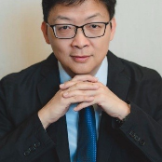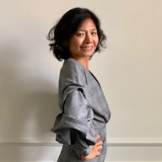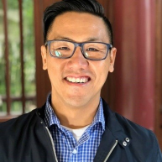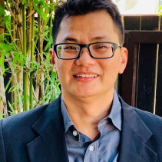
温宗堃博士
工作坊主题:正念沟通
在今日讯息时代,人们的讯息交流速度比过往快上数十倍。社群媒体一方面便利人们的互动交流,但同时也突显人们在政治、族群、性别等诸多议题上的差异,甚至带来对立与仇恨。在此时刻,我们的社会迫切需要每个人学习促进和平的有效沟通方式,培养充满自我觉察而悲悯自他的沟通素养。
正念人际沟通课程培养我们在人际交流中的智慧和内在平静,对于任何需与人工作的职业,如教师、教练、心理咨询师、医师、职场主管将特别有帮助。 运用正念于人际沟通也是各种正念课程的进阶训练.

Ms. Ched Lee
We think we come across a certain way and give a certain message. We may even be dressed to match what we think communicates that way to inspire others, to give that well-intended message. We have the powerful strategies and cases to support everything we say. But our bodies have deeply-imprimed ways of communicating what we have long carried in us, silently guiding the words we choose and what we react to. Then like driverless cars, we find ourselves on the uninspiring highways of stress, pressure and the unknown.
Let me bring you on a discovery of your patterns, then the LE principles and practices: towards having your bodies and minds on board-more integrated than split, more powerful than diffused. If you have read the book, we take the learning off the pages to give you the experience of how it is to shift from personality to centre. This is a wonderful primer for Level 1 when we take on your questions that emerge; when we cultivate greater presence, confidence and compassion through embodying our most inspiring qualities.
You emerge from our 4 hours more knowledgeable about the leadership competencies that afford presence, enriched with a compassionate self-seeing of your signature pattern and the centering practice at the heart of Leadership Embodiment-that is yours for life.

Dr. Chan Kwong Chee
Workshop introduction in contemplative pedagogy, students are encouraged to become more aware of their internal world and connect their learning to their own values and sense of meaning which in turn enables them to form richer deeper, relationships with their peers, their communities and the world around them.
In this workshop Dr Kwong Chan will introduce the contemplative teaching model developed by the Griffith Medical School Communication Skills Stream (MaRIS) and explore the art of becoming a contemplative educator.

Mr. Onn Yee Han
Meditation is a vast topic, and a 4-hour workshop will obviously not do justice to it. However, I feel that it’s a practical way for anyone to start practicing mindfulness and get a general understanding of it. This workshop is also for all levels of meditators and wellness professionals who want to explore the similarity and differences of both traditional mindfulness and modern science-based meditation methods.
We will also discuss the most common types of mindfulness practiced all over the world to give you a general idea on which one is most suited to your needs and lifestyle.
Besides lectures, the workshop will also include hands-on sessions.
Day 1 will mainly cover foundational aspects while Day 2 will focus on more in-depth sharing, where the speaker will share his personal mindfulness learning journey and life stories.

